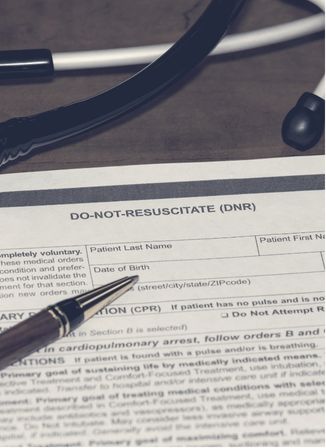The best estate attorney in monmouth county new jersey. wills, trusts and estates.
Anna Catherine Pelligra, Esquire
Manasquan, Nj


Last Wills & Testaments
A Last Will and Testament is an essential document that ensures your assets are distributed according to your wishes after your death. It allows you to name beneficiaries, appoint an executor to manage your estate, and designate guardians for minor children. Without a will, your assets may be distributed according to state laws, which may not align with your preferences.
Why You Need a Will
Having a will in place gives you control over your estate and protects your loved ones from unnecessary legal complications and additional fees upon your passing. By specifying who should inherit your assets and in what manner, you avoid letting the state make those decisions on your behalf, which could lead to unintended consequences for your family.
What Happens Without a Will
Without a valid Last Will and Testament, your estate will be subject to state intestacy laws. This could result in assets being distributed to family members according to a formula, regardless of your personal relationships or wishes. In addition, the court will appoint an administrator to handle your estate and guardians for your children, which may not reflect your preferences.


Revocable Trusts
A Revocable Trust, also known as a living trust, is a powerful estate planning tool that allows you to manage your assets with flexibility and control. Unlike a will, a revocable trust helps you avoid probate, ensuring a quicker and more private transfer of assets to your beneficiaries. This trust can be altered or revoked at any time during your lifetime, giving you the ability to adjust your estate plan as your circumstances change.
Why Choose a Revocable Trust?
A revocable trust provides significant benefits, including the ability to maintain control over your assets while simplifying the distribution process for your loved ones upon your passing.
Advantages of Revocable Trusts
A revocable trust can help avoid the time-consuming probate process, ensuring that your assets can be passed on in an efficient manner. Its flexibility means you can make changes or revoke it entirely as circumstances change in your life, and it can provide a greater level of privacy for your estate plan.


Powers of Attorney
A Power of Attorney ("POA") is a crucial legal document that allows you to appoint someone you trust to handle your personal, financial, or legal affairs on your behalf. This document becomes especially important if you are unable to make decisions due to incapacity or illness. By designating an agent, or "attorney-in-fact," you ensure that your affairs will be managed according to your wishes without court intervention.
Why a Power of Attorney is Important
Having a POA in place provides peace of mind, knowing that someone you trust will step in if you are no longer able to manage your affairs. Without this document, your loved ones may be forced to seek a court-appointed guardian, which can be a lengthy and costly process. A POA helps avoid unnecessary delays and ensures that your personal and financial matters are handled promptly and efficiently.
How a Power of Attorney Works
With a Power of Attorney, your chosen agent has the legal authority to make decisions on your behalf, from managing bank accounts and handling business transactions to overseeing your healthcare needs. This ensures that your wishes are respected and that your family is spared the burden of making difficult decisions in times of crisis.


Medical Directives
Medical Directives, also known as Advance Directives, are essential documents that communicate your healthcare wishes in the event that you are unable to speak for yourself. These directives ensure that your medical preferences are respected and provide clear guidance to your loved ones, alleviating the stress of making difficult decisions during critical moments. By having these directives in place, you maintain control over your healthcare decisions, even when you cannot communicate them directly.
Why Do Medical Directives Matter?
Medical Directives are vital in ensuring that your healthcare choices are carried out as you intend. Without clear instructions, loved ones may be left in a challenging position, making decisions without knowing what you would have wanted. These documents offer peace of mind to both you and your family, as they provide a plan for medical treatment in circumstances where you are incapacitated or unable to express your preferences.
How Medical Directives Work
Medical Directives typically include documents like a Living Will, which specifies your preferences for end-of-life care, and a Healthcare Power of Attorney, which designates someone to make medical decisions on your behalf. Together, they ensure that your wishes are honored and that those you trust have the authority to act on your behalf when it matters most.


Living Wills
A Living Will is a crucial document that outlines your preferences for end-of-life care in situations where you are unable to communicate your wishes. This legal directive allows you to specify whether you would like life-sustaining treatments or if you prefer comfort care only. By creating a Living Will, you ensure that your healthcare providers and loved ones understand your choices, sparing them the emotional burden of making these difficult decisions on your behalf.
Why You Need a Living Will
A Living Will allows you to take control of your healthcare decisions, even when you are unable to express them yourself. Without clear instructions, family members may be left guessing about your preferences, which can lead to stress and potential disagreements. A Living Will offers clarity, ensuring that your wishes are respected and that your loved ones are supported during a difficult time.
How a Living Will Works
A Living Will goes into effect when you are unable to communicate and outlines specific treatments you do or do not want. This includes decisions about life-sustaining interventions such as resuscitation, ventilators, or feeding tubes. By having this document in place, you provide clear guidance on your healthcare preferences, giving your family and medical team the confidence to act according to your wishes.


Advanced Estate Planning
Advanced Estate Planning offers comprehensive strategies designed to preserve your wealth, protect your assets, and ensure the smooth transfer of your estate across generations. Beyond the basics of traditional estate planning, advanced techniques allow you to minimize tax liabilities, protect your assets from unforeseen challenges, and create a lasting legacy for your family. Whether you are a business owner, a high-net-worth individual, or simply planning for future generations, advanced estate planning gives you the tools to safeguard what matters most.
Why Advanced Estate Planning is Essential
Advanced estate planning is crucial for those who wish to maximize the benefits of their estate and protect it from unnecessary taxes, legal complications, or financial risks. It allows you to structure your estate in a way that not only benefits your family but also aligns with your long-term goals, including charitable giving or business succession planning. By employing advanced strategies, you gain peace of mind knowing that your wealth is protected and your estate will be managed according to your wishes.
Advanced Strategies for Estate Planning
Advanced estate planning tools like Irrevocable Life Insurance Trusts (ILITs), Spousal Lifetime Access Trusts (SLATs), and Grantor Retained Annuity Trusts (GRATs) are designed to provide flexibility and protection. These tools can help minimize estate taxes, ensure your wealth is passed down efficiently, and protect your assets from creditors or legal claims. With our guidance, you can develop a customized plan that meets your specific needs and goals, securing your legacy for generations to come.
Plan Your Legacy
With Us Today
Secure Your Future With An Attorney Today in Manasquan, New Jersey
Get A Free Consultation


